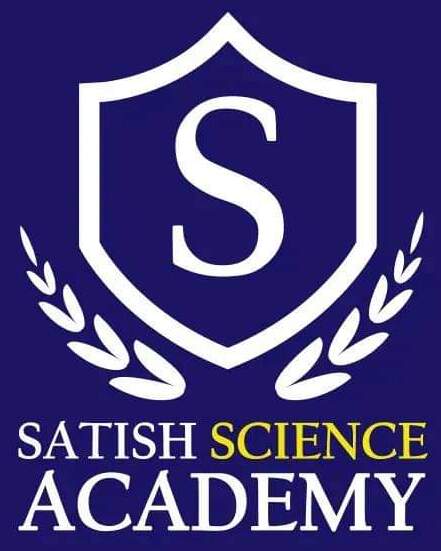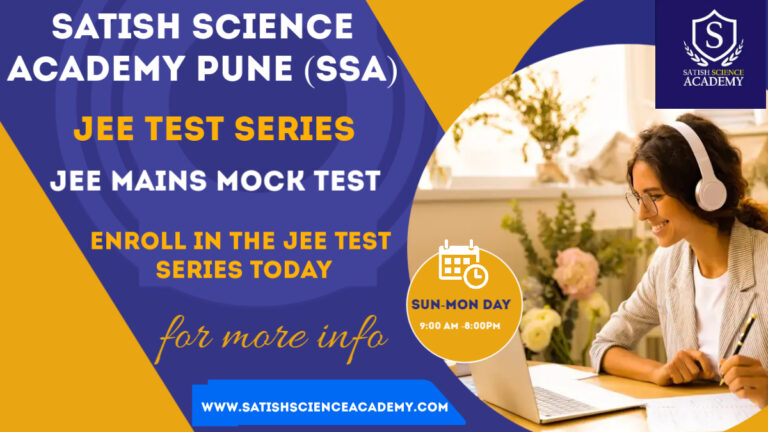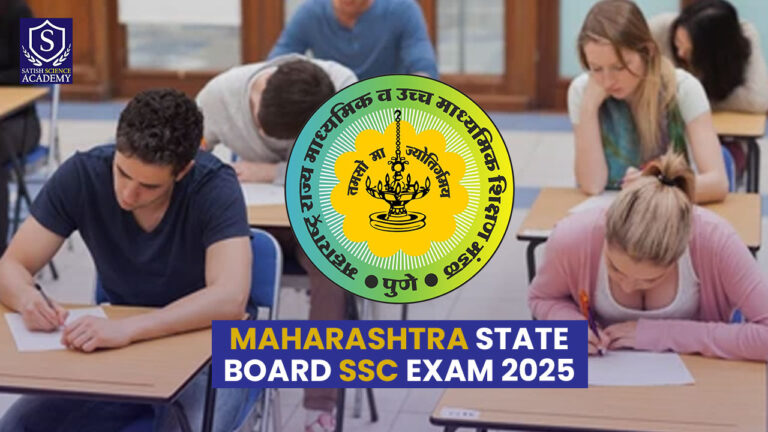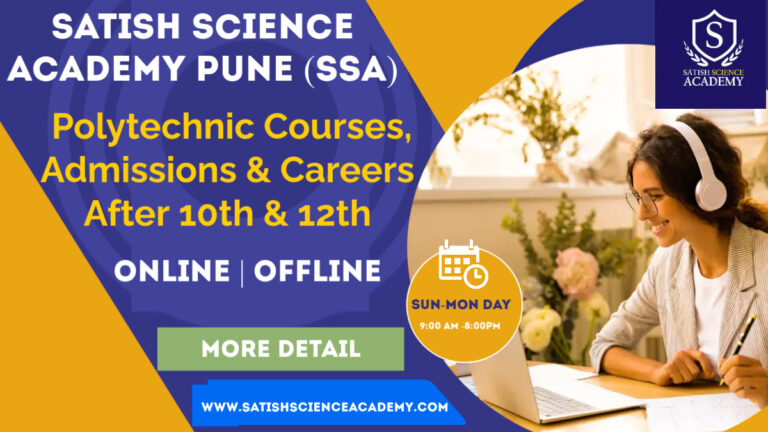Best SSB Interview Guide 2025:Cracking the Armed Forces Selection
What is the SSB Interview?
Introduction to the SSB Interview
The SSB Interview, or Services Selection Board Interview, is a comprehensive evaluation process conducted by the Indian Armed Forces to select individuals for officer-level positions in the Indian Army, Navy, and Air Force. Unlike standard interviews that focus primarily on academic results or professional experience, the SSB Interview is designed to assess a candidate’s personality, character, leadership ability, and mental agility.
This five-day selection process includes various tests—ranging from psychological assessments and group discussions to individual tasks and personal interviews. Each stage is meticulously structured to evaluate whether a candidate has what it takes to lead, inspire, and make sound decisions under challenging conditions.
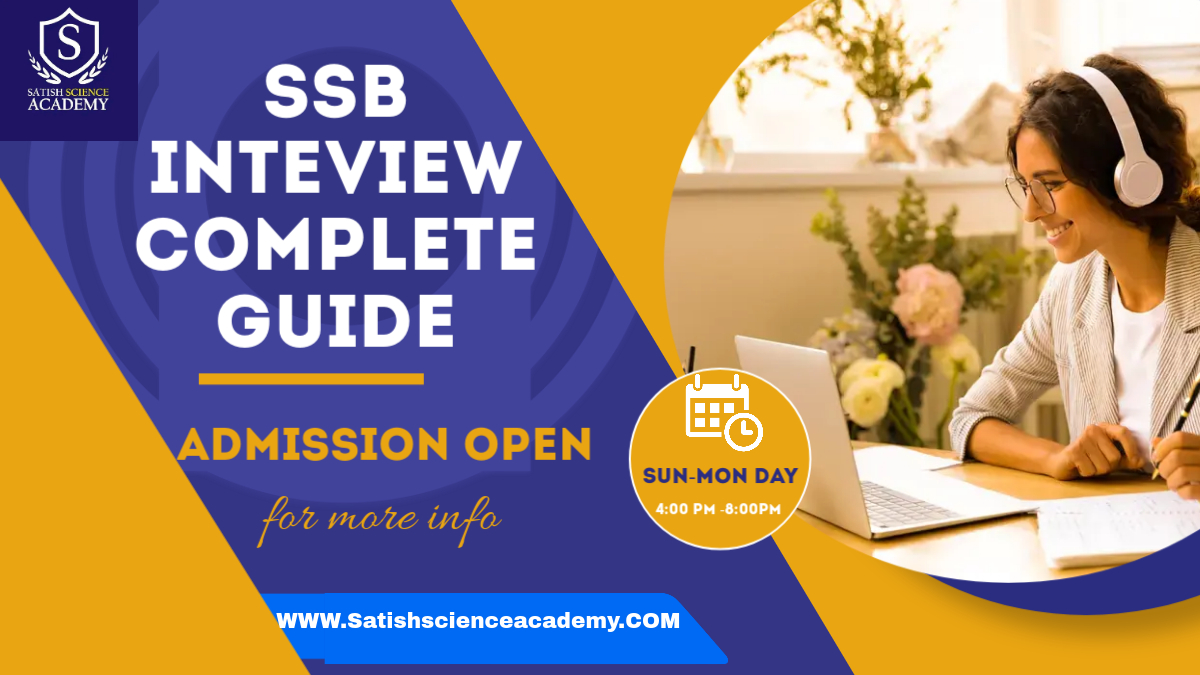
Purpose of the SSB Interview
The core goal of the SSB Interview is to identify candidates who have the potential to become successful officers in the armed forces. Rather than relying on academic scores alone, the SSB seeks candidates who demonstrate Officer Like Qualities (OLQs). These include:
-
Leadership and responsibility
-
Teamwork and cooperation
-
Emotional stability
-
Quick decision-making
-
Effective communication
-
Confidence and initiative
In essence, the SSB Interview measures how well a person aligns with the core values and high standards required in military service. It ensures that only those with the right temperament, moral compass, and resilience are selected for training as future leaders of the nation.
Eligibility and Role in Officer Selection
Candidates become eligible for the SSB Interview through various entry schemes, including:
-
NDA (National Defence Academy) – for candidates after Class 12 (mostly male aspirants)
-
CDS (Combined Defence Services) – for graduates from any recognized university
-
AFCAT (Air Force Common Admission Test) – for those applying to the Indian Air ForceUES (University Entry Scheme) or NCC Special Entry – for candidates with military training or academic performance
-
Once shortlisted through a written test or direct entry, candidates receive a call letter for the SSB Interview at one of the official selection centers across India.
Importantly, final selection depends entirely on how well a candidate performs during the SSB Interview, not just on written exam scores. This interview acts as a definitive assessment of a candidate’s personality and suitability for the officer cadre, making it one of the most critical stages in the military recruitment process.
Why the SSB Interview Matters
Experience and Expertise Required
The SSB Interview goes far beyond a standard test of knowledge. It is a comprehensive process that demands mental strength, emotional stability, and leadership potential. Unlike traditional interviews that focus primarily on academics or job-related skills, the SSB Interview emphasizes real-world thinking, psychological maturity, and a deep sense of responsibility.
Candidates may be young, but they are expected to exhibit qualities like clear communication, adaptability, and good judgment—traits that often come from life experience and personal values. The officers who conduct the interview are seasoned professionals trained to identify leadership attributes that are essential for a career in the Indian Armed Forces.
This isn’t just about passing a test—it’s about proving your capability to lead men and women in some of the most demanding environments. Therefore, the SSB Interview demands a blend of personal insight, calm decision-making, and consistent performance throughout the five-day assessment.

What Makes the SSB Interview Unique?
The SSB Interview stands apart from conventional selection processes in many ways. It is designed not just to evaluate intelligence but to measure the overall personality of a candidate. What makes it truly unique is its multi-dimensional approach to testing leadership potential and team behavior.
Here’s what sets it apart:
-
Holistic Evaluation: The process doesn’t rely on a single test. Instead, it includes group discussions, psychological assessments, personal interviews, and outdoor tasks—all observed by different experts.
-
Time-Tested Structure: Spanning five days, the interview offers a fair amount of time to understand each candidate in depth.
-
Behavior-Focused Assessment: Instead of just checking how much you know, the SSB evaluates how you think, react, and interact in various situations.
-
Equal Opportunity for All: Selection is strictly based on performance—there are no quotas or reservations involved.
This unique system makes the SSB one of the most trusted and rigorous officer selection processes in the country.
OLQs (Officer Like Qualities)
The central focus of the SSB Interview is to find candidates who display Officer Like Qualities, or OLQs. These are personality traits that reflect the potential to become an effective officer in the armed forces.
-
Organizing and Planning Ability – Logical thinking, problem-solving, and structured execution of tasks.
-
Team Compatibility – Ability to collaborate, support others, and contribute positively in group settings.
-
Effective Communication – Clarity in expression, confident body language, and impactful speaking.
-
Courage and Initiative – Readiness to take action, overcome fear, and accept responsibility.
Step-by-Step SSB Interview Process
It examines intellectual capabilities, personality traits, psychological strength, leadership potential, and physical fitness. Here’s a complete breakdown of each day.
Day 0 – Reporting and Documentation
Day 0 is primarily for administrative formalities and orientation.
-
Officials verify all original documents and credentials.
-
Chest numbers are issued, which are used as identifiers throughout the SSB Interview.
-
Candidates are briefed about the rules, dress code, and schedule of the upcoming days.
Though no official tests are conducted on this day, discipline and conduct are silently noted by assessors.
Day 1 – Screening Test
OIR Test (Officer Intelligence Rating Test)
-
This test assesses verbal and non-verbal reasoning.
-
It includes basic logical questions such as series, analogies, classifications, and coding-decoding.
-
The goal is to evaluate a candidate’s reasoning speed and accuracy under time pressure.
PPDT (Picture Perception and Discussion Test)
-
A blurred picture is shown for 30 seconds.
-
Candidates must write a relevant story based on the image in 4 minutes.
-
After writing, candidates narrate their stories and participate in a group discussion.
Performance in OIR and PPDT combined determines whether a candidate proceeds to the next stage of the SSB Interview process.
Day 2 – Psychology Tests
These tests assess the subconscious mind and reveal the real personality of a candidate. No right or wrong answers exist; honesty and consistency matter most.
TAT (Thematic Apperception Test)
-
12 images (including 1 blank) are shown.
-
For each image, a story is to be written within 4 minutes.
-
The stories reflect the candidate’s mindset, priorities, and problem-solving orientation.
WAT (Word Association Test)
-
60 words are shown, each for 15 seconds
-
The candidate must write the first thought or sentence that comes to mind.
-
This reveals attitude, spontaneity, and mental conditioning.
-
SRT (Situation Reaction Test)
-
60 hypothetical situations are presented.
-
Candidates must write instinctive responses that show practicality and responsibility.
-
SDT (Self-Description Test)
-
Candidates write how they are perceived by their parents, teachers, friends, and themselves.
-
This test measures self-awareness, emotional stability, and confidence.
These assessments are essential to check for Officer Like Qualities (OLQs) such as integrity, initiative, and team spirit.
-
-
uring the SSB interview, Day 3 and Day 4 are fully dedicated to GTO tasks. These are a mix of group-based physical and mental activities designed to assess your leadership, cooperation, decision-making, and communication skills—collectively known as Officer Like Qualities (OLQs).
Group Discussion (GD)
In this activity, a group of 8 to 10 candidates is given one or two topics to discuss. These topics are usually based on current affairs, social issues, or abstract themes.
-
The aim is to evaluate your clarity of thought, communication style, listening ability, and teamwork.
-
You must present your ideas confidently without being aggressive or dominating.
Group Planning Exercise (GPE)
Also referred to as the Military Planning Exercise, this task involves a situation-based problem presented on a model map.
-
Candidates individually write down their solutions and then work as a group to create a common action plan.
-
It tests your logical thinking, time management, prioritization, and group coordination.
Progressive Group Task (PGT)
In PGT, the group must cross a set of physical obstacles using helping materials like ropes, wooden planks, and barrels.
-
The tasks become more difficult as the group progresses.
-
The main objective is to observe your practical approach, cooperation, and application of logic while working in a team.
Command Task
This is an individual task where you play the role of a commander and choose subordinates from your group to assist you in completing a small obstacle-based challenge.
-
The focus is on your leadership skills, confidence, and ability to give clear instructions.
-
The GTO observes how well you take charge of the situation under stress.
Individual Obstacles (IO)
-
Each obstacle carries a score ranging from 1 to 10 based on its difficulty.
-
These obstacles test your physical stamina, agility, determination, and time management.
Final Group Task (FGT)
-
It is more complex and requires a high level of cooperation.
-
The GTO observes how effectively you function as part of a team after working together for two days.
The GTO tasks collectively evaluate how you perform under physical and psychological stress, how you interact with peers, and how well you display potential as a future leader in the armed forces.
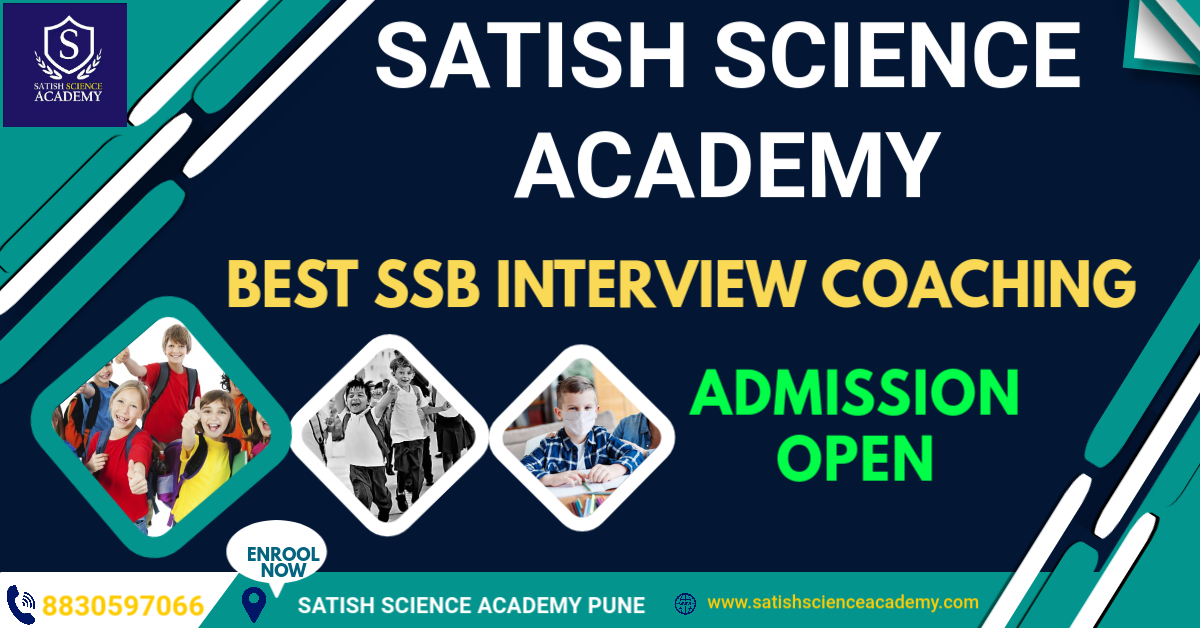
Day 5 – Conference
The final day of the SSB interview is the conference, where your performance over the last four days is reviewed by the entire panel of assessors—comprising the Interviewing Officer, Psychologist, and GTO.
-
Each candidate is called individually for a short interaction.
-
You may be asked about your overall experience, stay, what you learned, and whether you would like to suggest any improvements.
-
Borderline candidates may face additional questions to help the panel make a final decision.
This session is designed to:
-
Cross-verify assessments from all testing techniques.
Tips to Crack the SSB Interview
Successfully clearing the SSB interview requires more than just academic excellence—it’s about demonstrating your overall personality, awareness, and mindset. Below are some practical and proven tips to help you prepare effectively for every stage of the SSB process.
Build Your Personality
The SSB interview is not a typical exam—it’s a personality-based assessment. The selectors are looking for individuals who naturally exhibit Officer Like Qualities (OLQs) such as leadership, responsibility, communication, emotional intelligence, and integrity.
To build the right personality traits:
-
Develop self-awareness – Understand your strengths and areas of improvement.
-
Work on communication – Speak clearly, listen actively, and express yourself logically.
-
Show initiative – Be someone who takes responsibility and offers constructive solutions in a team setting.
-
Improve body language – Maintain a positive posture, make appropriate eye contact, and appear confident. Remember, personality cannot be built overnight, so focus on consistent self-improvement over time.
Practice Regularly
Consistent and focused practice is key to cracking the SSB interview. Each task, whether written or spoken, tests your natural responses under pressure, so the more familiar you are with the format, the better you’ll perform.
Here’s how to practice effectively:
- Practice PPDT and TAT regularly to improve your story writing and visualization skills.
-
Work on your physical fitness to prepare for obstacle-based tasks in the GTO round.
-
Join a reputed coaching institute or online group that focuses on SSB preparation, but ensure your personality remains authentic. Regular practice sharpens your reflexes, reduces nervousness, and boosts your overall confidence.
Stay Informed and Confident
Being updated with current affairs and understanding social, political, and defense-related issues is important for the personal interview and group discussions.
To stay well-informed:
-
Read newspapers daily and follow defense updates and national news.
-
Watch SSB-related videos to understand real-time expectations and performance.
-
Stay confident in your ideas—don’t fake opinions or copy others during group activities.
Confidence comes from preparation and clarity of thought. Don’t worry about being “perfect.” The assessors are more interested in seeing your natural self, logical thinking, and positive attitude under pressure.
Trustworthy Insights from Experts
Cracking the SSB interview requires more than just preparation—it demands insights that are reliable, experience-backed, and aligned with Google’s E-E-A-T guidelines (Experience, Expertise, Authoritativeness, and Trustworthiness). Following these standards ensures you’re consuming and applying advice that can actually help you get recommended.
Following Google’s E-E-A-T Guidelines
Experience: From Real Aspirants
Many successful candidates have shared their authentic experiences of the SSB interview process—from Day 1 to the Conference. Learning from their journeys provides practical takeaways: what to expect, how to behave, and how to manage stress.
Expertise: Input from Ex-Officers
Several retired officers, who have served as assessors, regularly share insights through seminars, books, and online platforms. Their expertise gives a clear understanding of what assessors look for—especially in psychological tests and GTO tasks.
Authoritativeness: Referencing Official Sources
It’s important to rely on official defense recruitment websites, verified training academies, and published handbooks. These sources provide accurate information about the SSB interview procedure, eligibility, and selection standards.
Trustworthiness: Updated and Verified Advice
The SSB process may evolve over time. Ensure you follow platforms that regularly update information—like defense ministry portals, current affairs magazines, and forums moderated by professionals.
Common Myths About the SSB Interview
Many candidates fall for widespread myths that create confusion and unnecessary fear. Let’s clear up the most common misconceptions.
You Need Coaching to Clear SSB
While coaching can help you understand the structure of the SSB interview, it is not mandatory. Many candidates get recommended purely through self-preparation, self-awareness, and consistent practice. What matters more is genuine personality development, not mugging up rehearsed answers.
Physical fitness is just one part of the process. While it’s important for GTO tasks, the SSB interview primarily tests your mental sharpness, leadership traits, and emotional stability. Even someone with average fitness can get selected if they display clear Officer Like Qualities (OLQs).
How to Stay Updated and Prepared
Success in the SSB interview requires both knowledge and consistent discipline. Here’s how to stay well-prepared.
Resources to Follow
-
Official defense websites like joinindianarmy.nic.in, joinindiannavy.gov.in
-
Books like “Let’s Crack SSB Interview” by SSB Crack and “Psychological Tests in SSB Interview”
-
Online forums and YouTube channels where candidates share updates and preparation tips
-
Current affairs apps and monthly defense magazines
Daily Habits to Develop
-
Read newspapers and editorials daily to strengthen your awareness and vocabulary
-
Practice speaking in front of a mirror or with peers to build fluency and confidence
-
Write stories, WAT responses, and self-descriptions regularly to refine psychological test readiness
-
Stay physically active to improve stamina and discipline
Making these habits part of your routine will gradually align your mindset with what’s required to succeed in the SSB interview.
Final Thoughts – Your SSB Interview Journey Begins Now
Cracking the SSB interview is a rewarding challenge that tests you beyond academics. It’s a process that filters individuals with the right balance of intelligence, personality, and responsibility.
Recap of What It Takes to Succeed
- Practice all tasks—mental, verbal, and physical—with consistency
-
Focus on developing real OLQs rather than pretending to be someone you’re not
-
Stay updated and trust authentic sources
Motivational Note for Aspirants
Your journey to wear the uniform doesn’t begin on Day 1 at the SSB—it starts the day you decide to prepare with purpose. Trust your potential, stay disciplined, and remember: the SSB interview doesn’t look for perfection, it looks for promise.
1. What is SSB Interview?
SSB (Services Selection Board) Interview is a 5-day personality and intelligence assessment process conducted to select candidates for officer-level positions in the Indian Armed Forces (Army, Navy, Air Force).
2. Is SSB Interview tough?
Yes, it is considered tough because it not only tests knowledge but also personality, leadership, communication, confidence, and mental strength.
3. SSB Interview kya hota hai?
SSB Interview ek 5 din ka process hota hai jisme candidates ki personality, communication, leadership, or decision-making skills ka test liya jata hai. Ye Army, Navy, aur Air Force me officer banne ke liye hota hai.
4. How many candidates are selected for NDA SSB Interview?
From NDA written qualifiers, about 8,000 to 9,000 candidates are selected for the SSB Interview.
5. How many students clear NDA SSB Interview?
Out of thousands of candidates, only around 300 to 400 are finally recommended for NDA after the SSB interview and medicals.
6. How to prepare for SSB Interview?
-
Understand the 5-day process
-
Practice PPDT, TAT, WAT, SRT
-
Improve communication and body language
-
Read current affairs and defense news
-
Work on physical fitness
-
Practice mock interviews and group discussions
7. NDA SSB Interview Questions
Common questions include:
-
Tell me about yourself
-
Questions on current affairs, hobbies, and family
-
Situation Reaction Test (SRT) and Psychological test questions
8. SSB Interview Questions and Answers PDF
You can find various PDFs online with:
-
50+ sample questions and answers
-
Tips for PIQ form
-
Psychology and GTO tasks guidance
(Search: “SSB Interview questions PDF” on official sites or prep platforms like Defence Direct Education, Major Kalshi, etc.)
9. How to crack SSB Interview?
-
Know the full SSB procedure
-
Be honest, confident, and natural
-
Practice regular mock tests and group tasks
-
Improve your communication and observation
-
Stay fit and alert throughout the 5 days
10. Questions asked in SSB Interview
They test:
-
General awareness
-
Family background
-
Strengths/weaknesses
-
Past experiences
-
Problem-solving and leadership situations
11. How to clear SSB Interview?
Focus on:
-
Psychology test: Show clarity and consistency in thoughts
-
GTO tasks: Show leadership, teamwork, and initiative
-
Personal interview: Be confident and clear
12. How to introduce yourself in SSB Interview?
A simple format:
“Good Morning Sir. My name is [Your Name]. I belong to [City, State]. I completed my schooling from [School Name] and currently pursuing [Course]. My hobbies include [Hobbies]. I’m passionate about joining the Armed Forces because [Reason].”
13. SSB Navy Interview Questions
Same pattern as Army and Air Force but with Navy-specific questions like:
-
Why Navy over Army or Air Force?
-
Knowledge about Navy ranks, ships, commands
14. How to crack SSB Interview in first attempt?
-
Be mentally and physically prepared
-
Avoid copying others; be your original self
-
Daily practice of psychology and GTO tasks
-
Learn from feedback of previous aspirants
-
Time management during each task
15. What is the number of candidates selected for the SSB Interview?
For NDA: Around 8,000–9,000
For CDS: Around 6,000–7,000
Depends on the cutoff and number of vacancies
16. How many students clear SSB Interview?
On average, only 5–6% of the candidates get recommended.
17. How to crack SSB Interview of NDA?
-
Clear NDA written exam
-
Practice SSB tasks before interview
-
Focus on OLQs (Officer Like Qualities)
-
Practice writing stories and speaking fluently
-
Be positive and proactive in all tests
18. 50 Basic Questions Asked in SSB Interview
Includes:
-
Tell me about yourself
-
Your strengths/weaknesses
-
Family background
-
Favorite subject and why
-
Situational and psychological questions
-
National and international current affairs
19. After SSB Interview What Next?
-
If Recommended: Go for Medical Examination
-
If medically fit: Wait for merit list
-
If in merit: Receive joining instructions
-
If not recommended: You can apply again (if eligible)
20. How many marks in SSB Interview?
-
Total: 900 Marks
-
Psychological Test: 300 marks
-
GTO Tasks: 300 marks
-
Interview: 300 marks
-
-
You need to score well in all and get recommended by the Board
